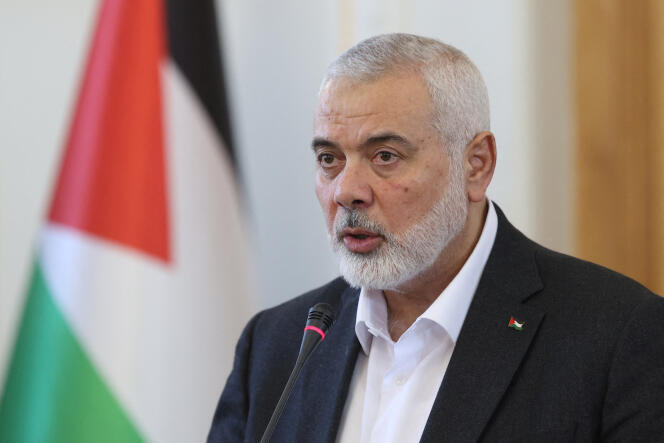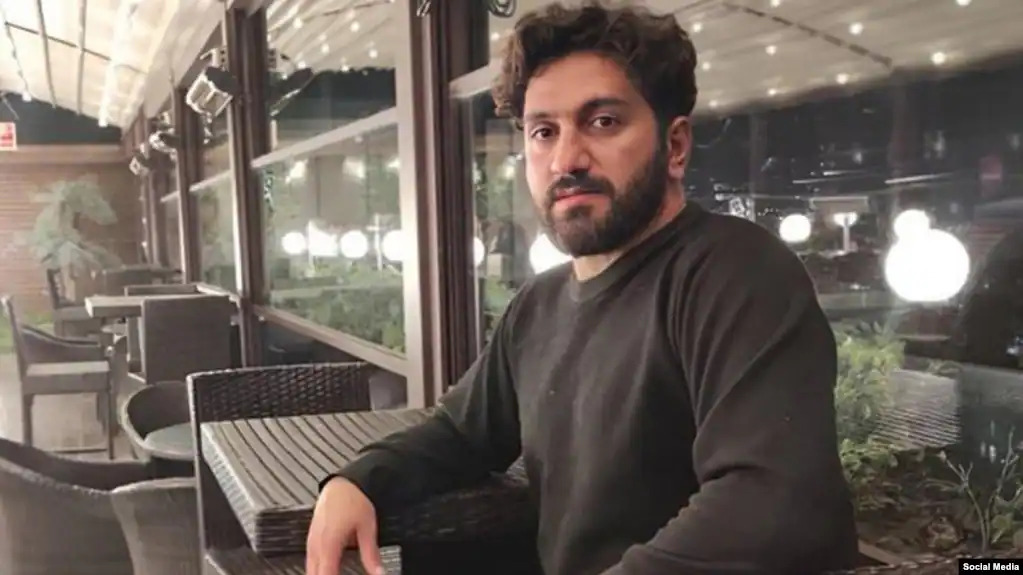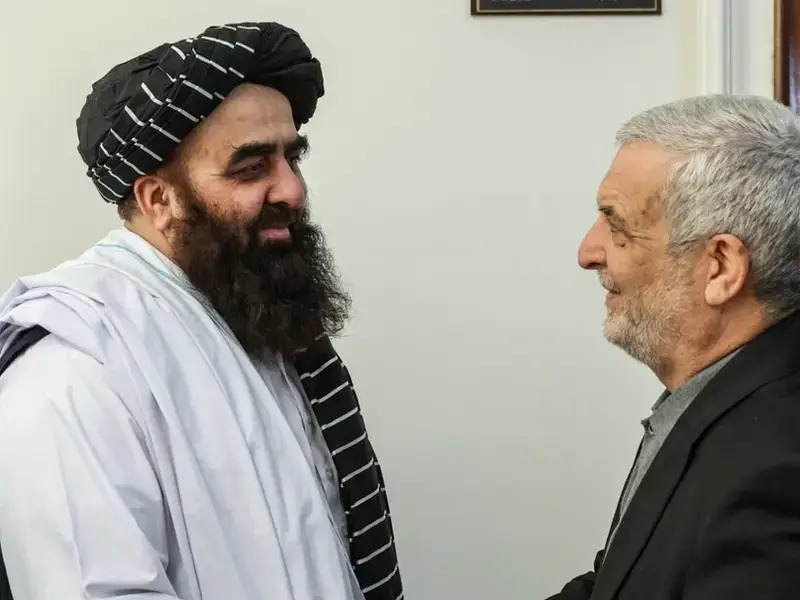
The Confrontation Between Iran and Israel and the Complex Middle East Equation
An editorial titled “The Confrontation Between Iran and Israel and the Complex Equation of the Middle East” was penned by Mohammad Javad Qahramani and published in Etemad newspaper. It delves into the recent assassination of Ismail Haniyeh in Tehran, highlighting how this incident once again demonstrates the fragile regional situation. The editorial noted that although a new level of deterrence was previously thought to have been established following Israel’s attack on the Iranian consulate in Syria and Iran’s retaliatory strike, it was evident at the time that continued conflict in Gaza could lead to similar incidents or miscalculations. The region now finds itself in a state of anticipation, waiting to see how key players will react and what the next stages of regional developments will entail. In essence, the editorial questions what scenarios can be envisioned for the Middle East given the current tensions.
The editorial added that various international and regional voices, including government officials and think tanks, have unanimously concluded that Iran will indeed respond to Israel’s actions, though the intensity of this response may vary. The analysis frequently heard is that there is a genuine risk of a broader war engulfing the region. The editorial discussed how news reports emphasize Iran’s unwillingness to soften its stance and highlight Israel’s firm position that no act will go unanswered, underscoring the escalating tensions. In line with this understanding, some countries are employing diplomatic measures to prevent an escalation. Examples include appeals from multiple nations urging Iran to exercise restraint and avoid increasing regional tensions. The editorial highlighted the visit of Jordan’s foreign minister to Iran, pointing out that beyond the exchanged messages, this visit underscores the prevailing concerns. Despite reports of a heated phone conversation between President Biden and Prime Minister Netanyahu, the Biden administration has reiterated its unwavering support for Israel.
Simultaneously, the editorial noted that Washington has ramped up its military activities in the region, mirroring its response following Israel’s attack on the Iranian consulate. US military and defense officials have emphasized their commitment to bolstering the United States’ military presence in the region, including deploying additional ships, fighter squadrons, air defense systems, and unmanned weaponry. These actions and US rhetoric demonstrate the country’s seriousness in supporting Israel, despite expressing dissatisfaction with some of Netanyahu’s actions. The editorial suggested that these moves may also aim to deter or persuade Iran against retaliatory measures. Israeli officials have likewise stressed their readiness to confront a range of scenarios amidst escalating regional tensions.
The editorial explored whether recent developments might escalate the region into a full-scale conflict, asserting that this outcome depends on several factors. First, the intentions of the involved actors must be considered. Currently, although Iran has declared its intent to respond, there is no concrete evidence indicating a desire for war in the region. Regarding Israel, the editorial noted that despite widespread claims that Netanyahu seeks to drag the United States into a potential war with Iran through provocative actions, two key points must be considered: firstly, Israel has had similar opportunities before (while acknowledging the dynamic nature of developments), and secondly, it appears that Netanyahu is more focused on applying pressure on Democrats in the US political arena as the presidential election approaches. Kamala Harris’s statements in the United States reflected US concerns about Israeli actions.
Political Stability Amid Special Circumstances
An editorial on Hammihan Online highlighted the nature of politics as inherently flexible. It stressed that a key feature of effective political practice is the ability to adapt to external realities. Rigidity in political strategy often leads to fragility and eventual collapse. The article noted that numerous political structures have fallen because of inflexibility, quoting a revolutionary philosopher, “Everything solid melts into air.” This highlights the necessity for political systems to adapt and evolve in response to changing circumstances.
The editorial continued by illustrating how even the most dominant creatures on Earth, those that ruled for millions of years, eventually faced extinction due to their inability to adapt to environmental changes. This principle of “survival of the fittest” is also evident in political systems. For instance, the editorial cited the collapse of the Soviet Union as a prime example of how political structures can unexpectedly crumble due to inflexibility. Initially perceived as an unthinkable event, the fall of the Soviet Union caught many by surprise, yet retrospectively, it seemed almost inevitable. This downfall was attributed to the regime’s failure to adapt to its surroundings. The editorial emphasized that while politics requires adaptability, it does not mean abandoning core identity and mission. Hence, political entities must balance flexibility with maintaining a clear identity and mission.
The editorial discussed the issue of Iran’s current political situation, focusing on the election of President Pezeshkian. The election and the formation of his government came with a challenging mission, if not an impossible one, defining its identity. The task is to achieve “national consensus,” ensure domestic tranquility, engage in international dialogue, and reduce external tensions. The ultimate aim is to set Iran’s economic trajectory towards rationality, enhancing social welfare and justice. However, an unexpected event unfolded immediately after Pezeshkian assumed office: the assassination of Hamas Political Bureau Chief Ismail Haniyeh during his visit to Tehran for Pezeshkian’s inauguration.
Although Israel did not officially claim responsibility for the assassination, the editorial stated that it is widely believed to be their doing, especially given Israel’s silence on the matter. The editorial pointed out that this incident introduced a significant and influential variable that demands a response. Inaction is not an option due to the logic of power dynamics; failure to react to aggression can embolden attackers.
The editorial added that the government seems confident that its strategic response will not deviate from Pezeshkian’s main mission of improving public welfare. However, the editorial warned of the potential pitfalls of getting entangled in external conflicts, emphasizing that the assassination aims to disrupt Iran’s new political direction.
Yet the editorial emphasized that Iran must maintain its course amidst these challenges, reinforcing the government’s commitment to its primary goals of economic improvement and social justice. While acknowledging the complexities of the regional situation, it asserted that political stability must be preserved through strategic adaptability and unwavering dedication to core missions.
Pezeshkian Is the Government’s Last Chance to Get Out of the Current Situation
In his editorial titled “The Box with an Open Door,” Abbas Abdi discusses the political dynamics surrounding the new Iranian President Masoud Pezeshkian, as observed through the lens of social media analysis. He begins by noting a study conducted by Dr. Mohammad Rahbari, a data analyst specializing in social media trends, which analyzed tweets and retweets related to Pezeshkian between July 17 and July 27. The analysis revealed over 167,000 tweets and retweets about Pezeshkian, with a significant number coming from various factions within Iranian society.
The editorial highlighted that the data shows 40% of the online conversation is driven by “conservative” and revolutionary users who are internally critical of Pezeshkian and primarily support Saeed Jalili. This group’s high level of activity suggests a degree of organization and intent to influence public opinion against Pezeshkian. Meanwhile, users opposed to the Iranian political system, who also oppose Pezeshkian, contribute to 36% of the discourse. In contrast, Pezeshkian’s supporters, comprising “moderate” and “reformist” users, make up only 24% of the online dialogue. This disparity raises questions about the ongoing hostility towards Pezeshkian, even after the election has concluded.
The editorial emphasized the importance of directing the attention of Pezeshkian’s supporters to the fact that they need not worry about the opposition from extremists. The writer assured that these groups can be easily contained and that the responsibility to counter them lies with those who initially mobilized them, not with Pezeshkian’s supporters. The editorial suggested that the antagonism towards Pezeshkian is rooted in a failure to recognize the deeper significance of his election, which was not a mere chance occurrence but the result of a deliberate move away from past practices.
Test Diplomacy With Saudi Arabia at Least Once
An editorial penned by Sayyed Mohammad Hossein Malaek discussed the unexpected challenges faced by President Masoud Pezeshkian and his team following the assassination of Ismail Haniyeh by Israel. The incident, occurring at 3 a.m. on July 31, 2024, propelled Pezeshkian’s administration into the center of global politics at high speed. Traditionally, Iranian governments begin their terms by addressing natural disasters like floods and earthquakes, but this situation presents a different kind of crisis.
The government found itself grappling with several urgent options:
- Seeking revenge and military retaliation versus opting for no response.
- Deciding on an effective reaction while avoiding direct conflict with the United States or escalating regional tensions.
- Maintaining the country’s diminished authority in the Middle East.
- Choosing a symbolic response to address internal political grievances.
- Ultimately, achieving internal consensus.
The editorial noted that historically, the classic approach has been either to refrain from reacting, thereby suppressing anger, or to take unilateral actions of limited impact, which are then sold domestically at a high cost.
It argued that Pezeshkian’s administration should abandon this traditional foreign policy approach and consider a new strategy. The writer proposed that the president, who has not yet formed his cabinet, should promptly undertake an official visit to Saudi Arabia. There, he should engage with Saudi leaders to discuss the regional situation and potential solutions.
The editorial contended that effective diplomacy and agreements with Saudi Arabia could yield significant benefits. Given Saudi Arabia’s substantial influence over Israel and the United States, the following outcomes could be achieved:
- A ceasefire and swift end to the conflict in Gaza.
- Reduction in tensions and a ceasefire along Israel’s northern border with Lebanon.
The editorial stated that these diplomatic efforts would have a greater impact than the launch of hundreds of rockets. Malaek argued that this “highly radical” approach would be more effective and beneficial for the country’s economic and regional policies than previous measures.
The editorial urged President Pezeshkian to rethink traditional foreign policy strategies in light of the recent geopolitical crisis. By suggesting a strategic visit to Saudi Arabia and pursuing collaborative diplomatic efforts, Malaek emphasized the potential for achieving meaningful results and enhancing Iran’s regional influence.

The Americans Should Curb Israel Instead of Just Sending Messages

According to Quds Daily, Nasser Kanaani expressed renewed condolences over the assassination of Ismail Haniyeh during his press conference yesterday. He condemned the Israeli regime’s “unjustifiable” assassination of Dr. Haniyeh, the esteemed political leader of the Palestinian people, in Tehran while he was a guest of Iran attending the presidential inauguration. Kanaani described this act as a gross violation of human rights, the United Nations Charter, as well as international laws and norms respected by the global community.
Kanaani, a senior diplomat, stressed that Iran cannot rely on the Security Council or international bodies that have so far been inactive. He asserted that Iran views its right to defend its security, sovereignty, and territorial integrity as indisputable.
He noted that Iran has already undertaken necessary political and legal actions, including pushing for an urgent United Nations Security Council meeting, which, with the support of Russia, China, and Algeria, resulted in strong condemnations from many members. Additionally, an extraordinary session of the Organization of Islamic Cooperation (OIC) ministers will be held in Jeddah, Saudi Arabia, on Wednesday to address Israel’s criminal and reckless actions. Discussions with high-ranking officials will occur on the sidelines.
In response to a question from Quds Daily about the Wall Street Journal’s claim regarding US messages urging Iran to de-escalate tensions for improved relations with the West, Kanaani stated that no such messages are needed. He accused the United States of being fully complicit in Israeli crimes and genocide and called on the United States to pressure Israel to halt its military offensive and refrain from supplying arms. He emphasized that Iran is not responsible for increasing tensions; rather, Israel, with its unqualified support, is the source of insecurity.
Reza Rasaei, the Accused in the Case of the Killing of an IRGC Official, Has Been Executed

Mizan News Agency reported that Reza Rasaei, who was accused of killing the head of the Intelligence Department of the IRGC in the city of Sahneh, has been executed.
According to Mizan News Agency, the death sentence for Gholamreza Rasaei, referred to as “retribution,” was carried out on Tuesday, August 6, 2024, at the central prison of Kermanshah.
Reza (Gholamreza) Rasaei, 34 years old and a follower of the Yarsan faith, was sentenced to death by the Second Criminal Court of Kermanshah for his involvement in the murder of Nader Bayrami, the head of the IRGC’s Intelligence Department in Sahneh. This sentence was confirmed by the Supreme Court in December of the previous year.
In addition to the death penalty, Rasaei was also sentenced to one year in prison and 74 lashes by this court.
The head of the IRGC’s Intelligence Department in Sahneh was killed on November 18, 2022 during a ceremony marking the anniversary of the death of Khalil Ali-Nejad (a former leader of the Yarsan community) in Sahneh, which turned violent.
Other charges against Rasaei included “inflicting non-lethal intentional injuries not leading to death, displaying and showing power with a knife, and disturbing public order through creating noise and chaos.”
Reports indicate that the First Chamber of the Supreme Court deemed the appeal for retrial by Rasaei’s lawyers as “legally insufficient,” ignoring all existing defects and ambiguities in the case.
Middle East Studies Center: Tehran Has Sacrificed Its Persian-speaking Allies in Afghanistan for the Sake of the Taliban

The Middle East Studies Center wrote in a recent analysis that Iran has distanced itself from its former Persian-speaking allies in Afghanistan, particularly the National Resistance Front, while strengthening its ties with the Taliban.
The analysis notes that Iran has refrained from any armed activities against the Taliban.
The research center stated that Iran has adopted a new approach in supporting the Taliban, aiming to transform itself into a “multi-religious Islamic power” by establishing new relations with extremist groups.
According to Ahmad Seer Davoodzai, the author of this analysis, handing over the Afghan embassy in Tehran to the Taliban is an example of this approach.
The analysis reports that Hassan Kazemi Qomi, Iran’s special envoy for Afghanistan, said that Iran’s relationship with the Taliban has become “better” compared to the previous Afghan government.
60% Increase in Femicides in Iran; Human Rights Activists Emphasize Raising Awareness to Protect Women

Data from a specialized platform on gender-based violence in Iran shows that femicides have increased by 60% in the first half of this year compared to the same period last year.
The platform Stop Femicide Iran, which focuses on monitoring female murders in Iran, has published an 18-month report on fatal violence against women and girls, examining these murders in 2023 and the first half of 2024.
The report describes femicide as “a crime internationally recognized as one of the most horrifying and overlooked phenomena” and tracks and analyzes the killing of women and girls in Iran.
For the past four years, this platform has provided users with access to open data research on femicide in Iran through an interactive map.
Stop Femicide Iran underscores the “need to increase awareness, support, and action to address the root causes of female murders and protect women’s lives from these atrocities.”
Marjan Kaypour, a human rights activist and director of Stop Femicide Iran, stated, “It is essential that we stand together to raise awareness, fight for justice, and ultimately end the cycle of violence against women and girls. Every life lost to gender-based violence is a tragedy that must not be ignored or go unanswered. We must dismantle harmful cultural norms and patriarchal systems that perpetuate this violence and build a society where all women can live without fear.”
Analysis of 156 recorded cases of gender-based violence in 2023 by this organization reveals that “factors such as increased government censorship, especially online, and the lack of public reporting by affected families due to distrust in the government” have contributed to these murders.
The age distribution analysis shows that “43% of the victims are young,” within the “15 to 35 years” age range, and “a wide range of age groups are affected by gender-based violence.”
